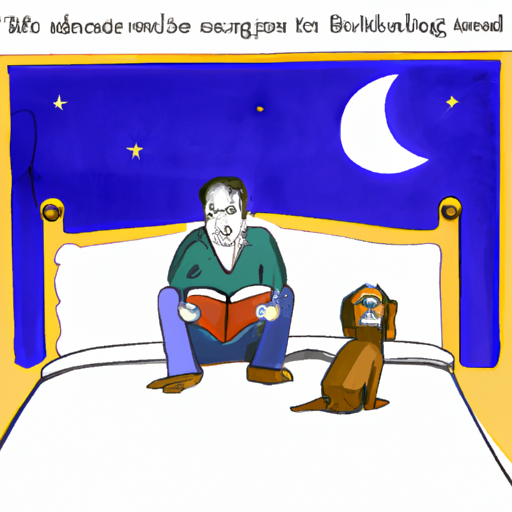Dogs, like humans, need a significant amount of sleep. But what happens when your furry friend won’t hit the hay? This comprehensive guide is here to help you understand and address the issue at hand.
1. Understanding Your Dog’s Sleep Patterns
Just like in humans, a dog’s sleep pattern varies based on age, breed, and health. Puppies and older dogs generally require more sleep. When your dog won’t sleep, it’s essential to consider these factors.
- Puppies: 18-20 hours/day
- Adult dogs (active): 14-16 hours/day
- Adult dogs (less active or older): may need more sleep
2. Identifying the Signs of Sleep Deprivation in Dogs
Sleep deprivation in dogs can lead to several symptoms. If you notice the following signs, your dog might not be getting enough sleep:
- Irritability
- Lethargy
- Hyperactivity
- Decreased appetite
- Difficulty focusing
3. Common Causes of Sleeplessness in Dogs
There are several reasons why a dog might struggle with sleep. Here are some common causes:
- Medical issues: These can range from pain to gastrointestinal disturbances or even serious illnesses.
- Anxiety: Like humans, dogs can suffer from anxiety, which may disrupt their sleep.
- Age: Older dogs may struggle with sleep due to discomfort from arthritis or cognitive decline.
- Environmental changes: Moving to a new home, the addition of a new family member, or even a new piece of furniture can disrupt a dog’s sleep.
4. Solutions for Sleeplessness in Dogs
Once you’ve established why your dog might be struggling to sleep, you can start to address the issue. Here are some strategies:
- Create a comfortable sleeping environment: Make sure your dog has a comfortable, quiet place to sleep.
- Establish a routine: Consistent feeding, exercise, and bedtime can help regulate your dog’s sleep.
- Consult a vet: If your dog’s sleeplessness persists, it may be time to seek professional help.
5. Coping Strategies for Caregivers
As a caregiver, a dog’s sleeplessness can also impact your sleep and wellbeing. Here are some tips to help you cope:
- Practice patience: Understand that your dog isn’t staying awake to annoy you.
- Seek support: Reach out to fellow dog owners or professionals for advice and emotional support.
- Take care of yourself: Ensure you’re getting enough sleep, eating well, and taking time for relaxation.
6. The Role of Diet and Exercise in Your Dog’s Sleep
Diet and exercise play a crucial role in your dog’s sleep patterns.
| Diet | Exercise |
|---|---|
| A balanced diet can promote better sleep. Avoid feeding your dog just before bedtime. | Regular exercise can help tire your dog out and promote better sleep. |
7. The Impact of Sleeplessness on Your Dog’s Health
Chronic sleeplessness can negatively impact your dog’s health. Some potential consequences include:
- Weakened immune system
- Behavioral issues
- Decreased lifespan
8. Frequently Asked Questions (FAQs)
Q: How much sleep does my dog need?
A: The amount of sleep a dog needs can vary based on their age, breed, and health. Generally, puppies need about 18-20 hours of sleep, while adult dogs need around 14-16 hours. Older dogs may need more sleep.
Q: What can I do if my dog won’t sleep?
A: First, try to identify any potential causes of sleeplessness, such as medical issues or environmental changes. Then, you can try solutions like creating a comfortable sleeping environment, establishing a routine, or consulting a vet.
Q: Can a dog’s diet impact their sleep?
A: Yes, a dog’s diet can impact their sleep. A balanced diet can promote better sleep. However, you should avoid feeding your dog just before bedtime as this can lead to discomfort and disrupt sleep.
Remember, while this guide provides a comprehensive overview of why your dog might not be sleeping, it’s always best to seek professional advice if you’re concerned about your dog’s health.



